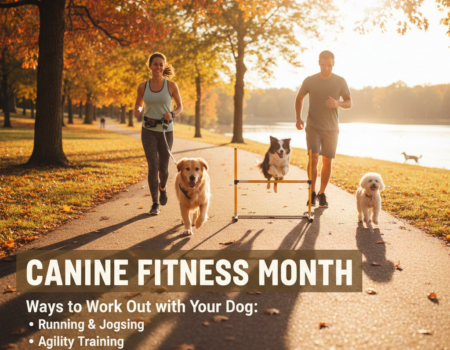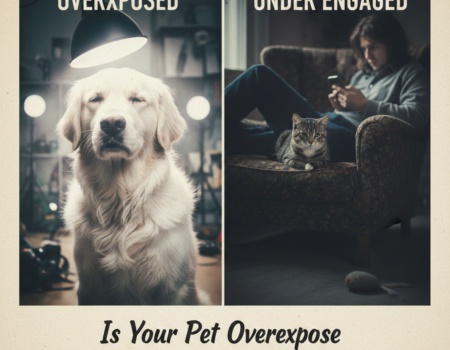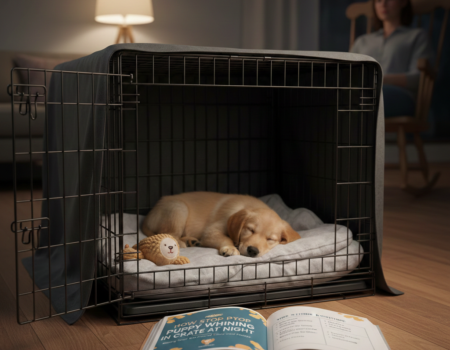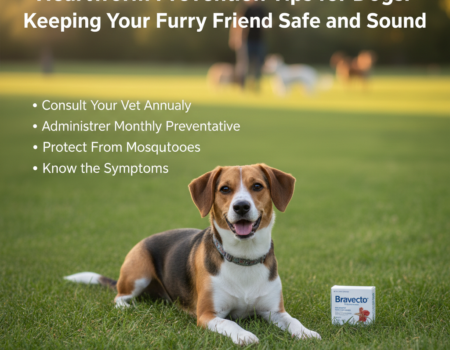Are you a dog owner who wonders if corn is safe for your pet? Many human foods contain corn. So, you might think it’s safe for dogs too. But is it really safe to feed corn to dogs? Let’s take a look at the risks and any possible benefits.
Benefits of Corn for Dogs
Corn in your dog’s diet, when moderate, can be quite beneficial. It’s rich in essential nutrients that are key for a dog’s health and happiness. Let’s look at the main perks corn brings to dogs:
Promotes Gut Health
The insoluble fiber in corn is great for the dog’s tummy. It helps with digestion and keeps things moving smoothly. This leads to a healthier gut and less chances of being constipated.
Supports Eye Health
Corn is full of carotenoids like lutein and zeaxanthin, aiding eye health. These nutrients protect the eyes from harm. They maintain good eyesight in your furry friends over time.
Provides Cellular Protection
Antioxidants in corn, including vitamin C, protect cells from free radical damage. Free radicals can harm cells, leading to health issues and aging. With corn in their diet, dogs get extra cell protection.
Versatile as a Treat or Meal Addition
There are many ways to add corn to your dog’s food. It can serve as a fun snack or mixed into daily meals. Be it on top of their food or part of homemade treats, corn makes meals more enjoyable and nutritious. Always check with a vet to get the right amount for your dog’s diet.
Risks of Feeding Corn to Dogs
Before you share corn with your dog, know the risks. Corn can be good for dogs, but there are things you need to be careful about. Not every dog can handle corn well, so watch out.
Plain Corn: Only give dogs plain corn, no butter or seasonings. Extra stuff on corn isn’t good for them and can make them sick.
Corn on the Cob: Never give your dog the cob to chew on. It’s hard to chew and could block their stomach. Eating a corn cob is serious and needs quick action from a vet.
Small Portions: Start with a little bit of corn. This way, you can see if your dog reacts badly. Signs like diarrhea or throwing up mean you should talk to the vet right away.
Canned Corn and Creamed Corn: Steer clear of canned or creamed corn. They’re often packed with salt, which is bad for dogs. It might also cause tummy troubles.
Calories: Think about how many calories are in corn. Too much corn can make your dog gain weight. Ask your vet about the right amount for your dog.
| Risks of Feeding Corn to Dogs | Precautions |
|---|---|
| Plain Corn | Avoid butter, salt, or pepper |
| Corn on the Cob | Difficult to chew, potential intestinal blockage |
| Small Portions | Start with small amounts, monitor for gastrointestinal upset |
| Canned Corn and Creamed Corn | Avoid due to high salt content, potential gastrointestinal upset |
| Calories | Consider calorie content, consult veterinarian for portion sizing |
Knowing these dangers can let your dog safely eat corn. But, always check with your vet to be sure it’s right for your dog.
How to Feed Corn to Your Dog
Before giving your dog corn, talking to a vet is important. They can help you decide the right amount and way to feed it. Here’s how to add corn to your dog’s meals safely:
- When feeding corn on the cob, cook it well. Ensure the kernels are soft and easily come off the cob.
- Take the kernels off the cob before giving them to your dog. This step avoids any dangers of choking or blockage.
- Frozen, plain corn is a good choice for your dog. It can go on top of their meals for a fun texture.
- If your dog likes corn, sprinkle it over their food or hide some underneath. This adds fun to their eating time.
- Get creative with corn in dog treats or meals. Always use safe ingredients and vet-approved recipes.
Every dog is different, so their food needs are, too. Talk to your vet first before adding new foods like corn to their diet.
Expert Tip:
Dr. Emily Thompson from PetPals Clinic advises watching your dog’s calories when feeding corn. Too much corn might cause them to gain weight. Adjust their food amounts as needed for a healthy diet.
| Corn Alternatives for Dogs | Nutritional Benefits |
|---|---|
| Brown Rice | High in fiber, vitamins, and minerals, brown rice is a healthy alternative to corn for dogs. It provides energy and supports digestion. |
| Quinoa | Rich in protein and amino acids, quinoa is a nutritious grain that can be substituted for corn. It aids in muscle development and promotes a healthy coat. |
| Sweet Potatoes | Loaded with vitamins and antioxidants, sweet potatoes are a tasty alternative to corn. They support immune health and provide essential nutrients. |
Can Dogs Have Sweet Corn?
Sweet corn might tempt your dog, but it’s wise to know the risks. It’s not as healthy as regular corn. So, think before treating your pet.
Sweet corn is sweeter and has more sugar than regular corn. This worries dogs with diabetes or those overweight. The starch in it is hard for dogs to digest. This can cause tummy troubles.
Feeding sweet corn should be small and occasional. It’s better for your dog’s diet that way. Always check with your vet. They can tell you if sweet corn fits your dog’s diet and health needs.
Alternatives to Sweet Corn
Want healthier options than sweet corn? Plenty of dog-safe alternatives exist:
- Green beans: Steamed or boiled green beans are a nutritious and low-calorie vegetable option for dogs.
- Carrots: Raw or cooked carrots are packed with vitamins and minerals and make a crunchy treat for dogs.
- Zucchini: This summer squash can be sliced and served raw or steamed as a tasty and hydrating snack.
- Cucumbers: Refreshing and low in calories, cucumbers are a great choice for dogs looking for a light snack.
Always add new foods slowly and watch for bad reactions. Dogs respond differently to foods. Give a variety of safe foods. This keeps your dog happy and healthy.
“While sweet corn can be a tasty treat for dogs, it is important to remember that moderation is key. Offering a variety of healthy alternatives can provide a well-rounded diet for your four-legged friend.” – Dr. Brittany Caramico
With the right info, you can make smart food choices for your dog. Your vet can give you custom advice and food tips.
| Corn Type | Nutritional Content | Risks/Considerations |
|---|---|---|
| Sweet Corn | Higher sugar content | Potential digestive issues |
| Regular Corn | Protein, carbohydrates, fiber, healthy fats, vitamins, and minerals | Possible allergies and choking hazards (cob) |
Note: This table is for informational purposes and does not replace professional veterinary advice. Always consult with your veterinarian before introducing new foods into your dog’s diet.
Can Dogs Have Corn on the Cob?
- Can dogs eat corn on the cob? No, dogs should never be fed corn on the cob.
- The hard cob can cause choking hazards and life-threatening intestinal blockage if ingested.
- If a dog does eat a corn cob, immediate veterinary attention is necessary.
- Symptoms to watch out for include vomiting, loss of appetite, diarrhea, difficulty pooping, stomach pain, or lethargy.
“Feeding corn on the cob to dogs can be extremely dangerous. The cob poses a significant risk of causing intestinal blockage, which requires immediate medical intervention. Dogs rely on their owners to protect them from potential hazards, so it’s crucial to keep corn cobs out of their reach.”
Can Dogs Eat Corn Bread?
A small piece of corn bread won’t likely hurt a dog. But, it’s not a good idea to make it a regular treat. Corn bread has butter, milk, or cream, which might upset a dog’s stomach.
Dogs and people need different kinds of food. Some things in corn bread might not sit well with a dog’s tummy. Things like butter and milk are hard for dogs to digest. They could even make a dog sick, especially if the dog can’t handle milk well.
Your dog’s health comes first when you’re thinking of what to feed them. Even though corn bread might seem like a yummy snack, it’s better to steer clear. Go for snacks that are made for dogs. This way, you can be sure they’re eating things that are good for them.
Thankfully, there are lots of treats that are safe for dogs and don’t contain corn. You can find healthy snacks that dogs love. These snacks are good for your pooch and won’t upset their stomach.
Always talk to your vet before you switch up your dog’s snacks. They can give you advice that’s right for your pet. This way, you can keep your dog happy and healthy with the best foods.
Can Dogs Eat Corn Chips/Tortillas?
Can dogs eat corn chips or tortillas? This question pops up often among pet owners. Sadly, these snacks are not good for our four-legged pals.
There are solid reasons to keep corn chips and tortillas away from your dog.
The Dangers of Corn Chips
Corn chips are fried and flavored with salt, onion, and garlic powders. These toppings are tasty for us but dangerous for dogs.
Onion and garlic can harm a dog’s red blood cells, causing anemia. Salt can throw off their body’s balance, leading to ear problems like dehydration and kidney damage.
The hard, crunchy nature of corn chips can also cause dogs to choke. This is especially risky for smaller dogs and those who tend to swallow food whole without chewing properly.
So, it’s smart to make sure your dog doesn’t get ahold of any corn chips. This will keep them safe and healthy.
The Safety Concerns with Tortillas
Corn tortillas share the same high sodium issues as corn chips. They could have more seasonings added. Too much sodium can harm a dog’s health, causing blood pressure and kidney problems.
Moreover, corn tortillas are not easy for dogs to break down. This can make them sick, leading to digestive problems like diarrhea, constipation, and stomach pains.
This is why it’s a good idea to steer clear of giving corn tortillas to your dog.
Is it dangerous if they eat a tiny bit of a corn chip or tortilla? Probably not. But, play it safe for your dog. Stick to food made just for them to ensure their health and happiness.
Can Dogs Eat Hard, Unpopped Corn Kernels?
Dogs should steer clear of hard, unpopped corn kernels. Corn itself can be good for them. But these kernels pose risks. A dog’s teeth aren’t made for breaking them down. So, dogs may swallow them whole, causing digestive problems.
Unpopped kernels are not easy on a dog’s stomach. They don’t pop like regular corn. This means they can cause issues like gas, bloating, or even constipation. If a dog eats a lot of these kernels, it could even block their intestines. This is a serious problem and would need the vet’s help right away.
Dogs and people digest food differently. Even though we like popcorn, dogs should avoid the hard, whole kernels. This helps keep them safe from health troubles. So, it’s best to keep unpopped corn away from dogs.
The Risks of Dogs Eating Unpopped Corn Kernels
The dangers of dogs eating these kernels are:
- The risk of choking if they swallow too many
- They might hurt their teeth biting on hard kernels
- It’s tough on their stomach, which could lead to sickness
- Eating a lot might block their intestines, a very serious issue
It’s very important to be careful with popcorn around dogs. Always pick up any stray kernels. Dogs could eat them without you knowing. Keeping this snack away from them is best.
So, when it comes to dogs and corn, choose wisely. Go for cooked corn or safe dog treats. This is because their health and safety come first. Choosing safer corn options helps reduce any dangers.
Top Dog Food & Treats with Corn
If you’re searching for dog food or treats with corn, you have several choices. Corn in your dog’s diet brings extra nutrients and tastes. Yet, talking to a vet before adding new foods is wise to make sure they’re safe and healthy.
1. PupCorn Plus Salmon & Sweet Potato Treats
These treats mix corn, salmon, and sweet potato for a flavorful and nutritious snack. They’re full of protein and vital vitamins, perfect for rewarding good behavior or as a snack.
2. Farmhouse Blend Dog Food
Farmhouse Blend uses corn as a key ingredient to offer a nutritious meal. It blends corn with protein, veggies, and top-quality ingredients. This mix gives your dog a delicious, wholesome meal.
Corn in your dog’s diet should be limited and mixed with other healthy foods. It’s important not to rely only on corn for your dog’s nutrition. If your dog has allergies or specific dietary needs, a vet should be consulted to check if corn is okay for them.
Adding dog food and treats with corn can bring more variety and nutrition to your pet’s meals. Always put your dog’s health first and get advice from a vet before making big changes to their diet.
Disclaimer: The information in this article is for educational purposes only and should not be used as a substitute for professional veterinary advice. Always consult with a qualified veterinarian for personalized recommendations regarding your pet’s diet and nutrition.
Conclusion
In conclusion, adding corn to your dog’s meals can be good and safe. But remember, it must be done wisely. Feed your dog corn in small amounts and remember some important rules. Never give your dog corn on the cob, seasoned, or buttered corn. These can be dangerous, causing choking or blockages.
Start by giving your dog a little corn and see how they react. Also, talk to a vet before adding corn to your dog’s diet. They will give you tips on how much corn is okay for your dog.
Follow these simple rules to keep your dog healthy while feeding them corn. Always put your dog’s health first. And, getting advice from experts will help you make the right choices about their food.
FAQ
Can dogs eat corn?
Yes, dogs can have corn in moderation. It’s packed with beneficial nutrients. They get protein, carbs, fiber, and more from it.
What are the benefits of corn for dogs?
Corn brings lots of good stuff to a dog’s diet. It offers protein, carbs, and fiber. It keeps the gut, eyes, and cells healthy too.
What are the risks of feeding corn to dogs?
But, avoid corn with butter, salt, or pepper. Corn on the cob is risky; it could block their gut. Canned or creamed corn might also upset their stomach.
How should I feed corn to my dog?
Give your dog plain corn in small helpings first. Skip the toppings. Don’t let them eat corn on the cob. Always check with a vet to know the right amount for your pet.
Can dogs have sweet corn?
Occasionally, yes. Sweet corn is okay in small amounts as a treat. But remember, it’s starchy and might not sit well with their stomachs.
Can dogs eat corn on the cob?
No, they cannot. The cob is a major choking hazard and can cause blockages. Keep corn on the cob away from your fur friend.
Can dogs eat corn bread?
Generally, it’s better not to give them corn bread. It often has dairy that can upset their stomachs. Find a safer snack for your dog.
Can dogs eat corn chips or tortillas?
Avoid corn chips and tortillas with added oil and seasonings. Things like salt, onion, and garlic are not good for dogs. Keep these snacks out of reach.
Can dogs eat hard, unpopped corn kernels?
Hard corn kernels are a no-go for dogs. They’re tough to digest and may upset their stomachs. Always pick safe food for your pet.
What are some dog food and treat options with corn?
Look for treats like PupCorn Plus Salmon & Sweet Potato. Farmhouse Blend Dog Food is another option. But, talk to a vet first when switching up their food.
Are there any safe feeding tips for dogs and corn?
Yes, stay safe by choosing plain, unsalted corn. Start small and consult your vet. They’ll help figure out the best corn amount for your dog.










No Comment! Be the first one.